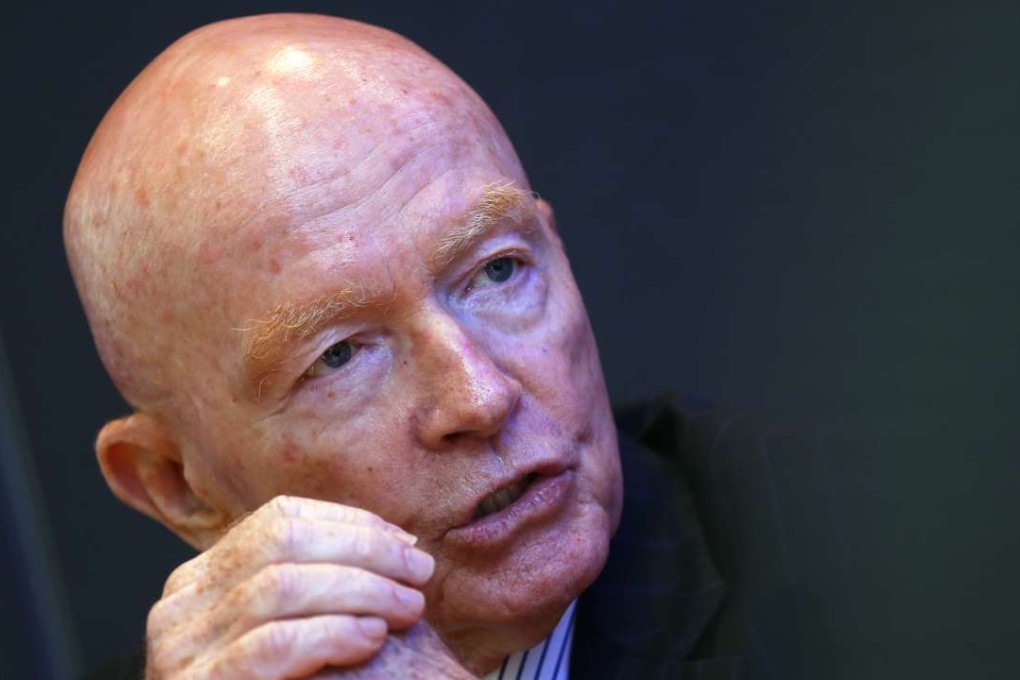A shares should be included in MSCI index, says emerging markets guru Mark Mobius
Fund manager says mainland China market has opened up more

Templeton Emerging Markets Group executive chairman Mark Mobius says A shares are ready to be included in MSCI indices in June, which may lead to US$400 billion of funds flowing into the mainland Chinese market because many fund managers follow them.
Mobius – dubbed the “father of emerging markets” – said it was also time to buy China and emerging market equities. About US$1.7 trillion of funds track MSCI’s emerging market indices.
In June last year, Mobius agreed with MSCI’s decision not to include mainland stocks in its benchmark emerging markets equity index as many barriers remained in place for foreign investors wishing to invest in A shares.
But he said conditions were now ready for A shares to be included because the mainland had opened up more and would continue to do so with moves such as the expected launch of the stock connect scheme between Hong Kong and Shenzhen in the second half of this year.
The Shenzhen stock market looks very attractive as it has many high technology and high-growth companies
Beijing launched the first stock connect tie-up between Shanghai and Hong Kong in November 2014. It allows international investors to trade A shares in Shanghai up to a quota, an arrangement which Mobius said was “much better than the Qualified Foreign Institutional Investor (QFII) scheme”. which was launched in 2002 and gave selected fund houses, banks or insurance companies quotas to invest in A shares.
“The QFII has lock-up period,” he said. “The stock connect does not have lock-up period and is far more flexible and attractive for international investors to trade A shares. QFII was only an interim measures for China to open up its market and I believe the stock connect schemes will eventually replace the QFII for the long term.